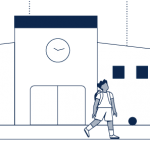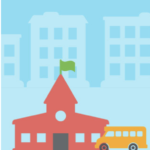Co-authored by Brad Saffer and Warwick Calkin
Reimagining excellence at University of Western Australia
Despite being located in Perth, Australia – the most remote capital city in the world, where case numbers have been measured in the dozens – not hundreds or thousands, the COVID-19 pandemic has impacted the University of Western Australia (UWA) in profound ways. The university is a member of Australia’s Group of Eight (Go8) universities, the equivalent of the Ivy League in the U.S. and the Russell Group in the U.K. UWA is globally recognised for research and teaching excellence. As a Go8 university, UWA has invested heavily to attract some of the world’s leading researchers, which in turn is used to attract top talent in terms of students and industry.
Change is in the air at UWA
- Decline in international students, driven by reduced global mobility and reluctance to study online only
- Challenges surrounding belonging and capacity to form peer-to-peer networks faced by international students that transitioned to online
- Rise in domestic students, driven by deferral of a gap year and overseas travel “rite of passage” common in Australia
- Acceleration of hybrid learning models, including using technology to deliver a better experience, not just trying to mimic the traditional face-to-face one
- An increased focus on jobs outcomes and the future of work
- Overcoming challenges for a COVID-safe return to campus and adoption of new operating models for administrative staff to work from home
- Increased expectation that UWA will engage with and support the local community
- A more acute focus on research impact and translation including use of the university’s own facilities as a living lab
With the decline in international student enrolment due to their inability to travel, UWA had to stand up distance learning quickly. We had to get faculty up to speed quickly, and transitioned more than 3,000 courses to online delivery in the first week of the pandemic. The focus after that was continuous improvement to ensure quality was not compromised and to ensure faculty felt supported.
As the university’s Chief Digital and Information Officer, I am one of the leaders tasked with planning and implementing these changes. As challenging as the shift to distance learning was, the university experienced improved academic performance and engagement as faculty shifted to recorded lectures and used their class time for more active and engaging activities. This made us realize that going back to traditional lecture formats was not an option and that we had to think about redesigning our classrooms spaces for new learning models.
There was also an acknowledgement that we had underinvested in technology over a sustained period of time. There are many reasons for this, including the challenges presented by historic buildings and the sprawling nature of our campus. The end result is that UWA faces basic challenges, such as providing high quality, consistent and secure Wi-Fi connectivity and digital collaboration.
Education is at a “Tipping Point”
These challenges fit into a broader strategy for campus transformation. As outlined in “The Tipping Point Report for Digitisation of Education Campuses” – an independent report commissioned by Cisco and Optus with input from the entire Australian university sector – the campus will be transformed in five fundamental ways.
- The campus will see fewer people, as we shift some administrative roles to remote work and leverage distance learning for certain courses.
- The campus will be more experiential, with formal and informal spaces redesigned for engagement and interaction.
- Our campus will promote health and well-being through improved health measures, cyber and physical security and smart environmental technologies.
- We will drive closer partnerships with industry to help students align their academic work with practical, hands-on experiences and connections to local businesses that can help them find jobs after they graduate.
- Our physical infrastructure will need to become more efficient by harnessing automation to manage costs and improve flexibility.
Becoming a leader in digital innovation
The challenge for UWA is how to ensure our next major investment in digital infrastructure provides an immediate platform to support its strategic objectives and provide a platform for sustained innovation and an excellent student and researcher experience. Digital innovation is now not just a critical enabler but a lever for differentiation. By embracing a digital-first mentality UWA can not only adapt to the experiences brought on by the pandemic but drive sustained innovation.
Digital will also play a major role in UWA being able to achieve its vision as a digital leader under our new Vice Chancellor with an ambitious focus on technology, industry and alumni as core drivers. UWA is committed to helping prepare students for an increasingly digitised world by providing flexible, industry-oriented and contemporary learning experiences (formal and informal). Where we create a university with a digital head and digital heart: where technology is not just an augmentation tool but benefits students, industry and staff.
Cisco and UWA are building the future of education
Our future engagement with industry is also going to be a vital area for UWA moving forward, and our partnership with Cisco will see collaboration move beyond provision of services and technology to technology and knowledge transfer at a deep level. As a global technology company, Cisco knows something about responding to macro shifts and transforming – UWA can benefit from that. UWA hopes we can apply our multi-disciplinary expertise to Cisco’s business and be an effective test bed for potential solutions by utilising the university as a living lab. A deep, multi-faceted partnership with industry is the only way for us to move fast enough.
>> Learn more about University of Western Australia
>> Read the Tipping Point Report



CONNECT WITH US